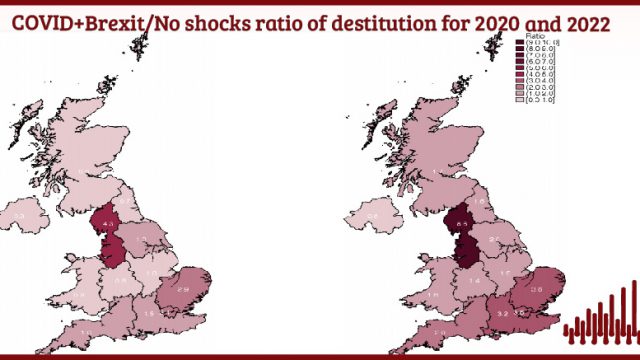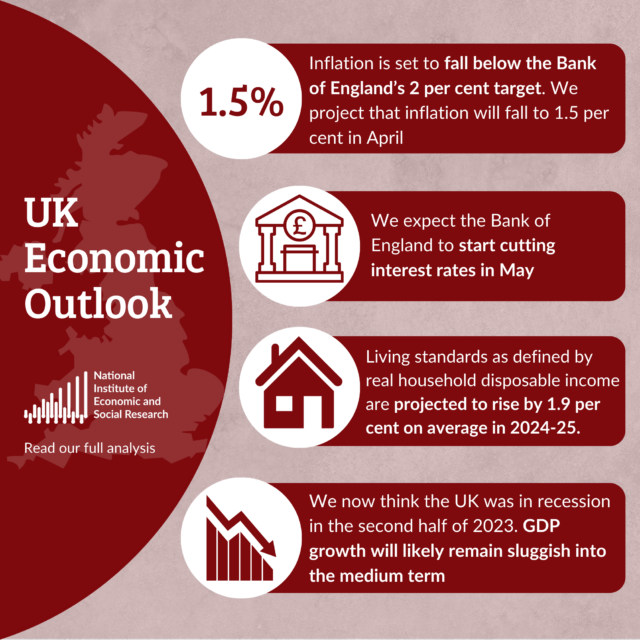The sustainability of the Scottish fiscal position from a generational perspective
The health of the public finances is a topic of growing interest in Scotland, as confirmed by the establishment of an independent fiscal watchdog – the Scottish Fiscal Commission. Although the discussion of fiscal matters often has a very short-term focus, which is partially explained by the limited duration of any administration, the effects of the population ageing require a long-term view and are likely to become increasingly acute for Scotland.

The health of the public finances is a topic of growing interest in Scotland, as confirmed by the establishment of an independent fiscal watchdog – the Scottish Fiscal Commission. Although the discussion of fiscal matters often has a very short-term focus, which is partially explained by the limited duration of any administration, the effects of the population ageing require a long-term view and are likely to become increasingly acute for Scotland.
In our new paper, we attempt to shed some light on the issue of long-term fiscal sustainability, as well as its intergenerational aspects, by applying a generational accounting model to Scotland.This methodology is centred on the idea of a generational account, defined as the expected present value of the taxes paid minus the benefits and public services received by individuals of different ages over their remaining lifetimes. Another central concept is the intertemporal budget constraint, according to which the present value of current and future government spending must be funded out of the present value of net contributions made by presently alive and future generations, and current net public debt[1]. Whenever revenue from these sources is insufficient to cover government spending, an intertemporal budget gap opens up, which has to be closed by either an increase in taxation or cuts to public spending.
To calibrate the model and identify the key factors determining the long-term fiscal outlook for Scotland we first look at the scenario which assumes “full fiscal autonomy”, i.e. full control over all public revenues originating in Scotland and public expenditures made for the benefit of Scotland. As a starting point we use data from Government Expenditures and Revenues Scotland (GERS) 2013. For future years we take current projections for main revenue and spending items at the UK level and calculate the Scottish equivalent on an age-adjusted basis. Given these assumptions, we find that to meet the intertemporal budget constraint, an immediate and permanent increase in overall tax revenue of about 8.5 per cent of Scottish GDP would be needed. By contrast, the UK is in a better position to close its intertemporal gap: a lower permanent tax hike of about 1.6 per cent of UK’s GDP is needed to restore balance.
Another, and potentially more interesting, scenario accounts for only those fiscal powers that were already devolved in 2013 and that are planned to be devolved in the near future to Scotland. It assumes the continuation of the Block Grant with adjustments calculated according to expected changes in the components of the Barnett formula and the planned waves of devolution of tax and benefit/spending items[2]. The results of this scenario show that the permanent increase in taxes required to restore intertemporal balance is about 4.7 per cent of GDP. These results are very sensitive to the assumptions on the block grant adjustments that will follow new devolved powers, which depend on the exact outcome of the negotiations between the Treasury and the Scottish government and are hence very uncertain at the moment. However, what is clear is that if future demographic pressures are not taken into account when discussing devolution plans and Block Grant adjustments, the Scottish public finances might be put under significant stress.
Our analysis supports Professor David Bell’s argument in his Paying for Powers post that current plans to devolve benefits that are targeted mainly at the older age groups of society are likely to pose a budgetary challenge unless changes in the Block Grant were to internalise the detrimental effects of the ageing process.
[1] We abstract from the important issues revolving around the devolution of borrowing powers, discussed in Angus Armstrong’s Scotland’s Fiscal Framework blog post.
[2] We drew mainly from the calculations behind Professor David Bell’s blog post Funding Smith – Budget 2018: Evidence to the Devolution (Further Powers) Committee






















